Plants pose a variety of benefits and have been celebrated for centuries. Horticulture therapy eases stress and increases feelings of well-being, while NASA studies prove some plants can purify your home’s air.
On top of health and wellness benefits, some plants are believed to be lucky. Good luck plants are especially popular during the Chinese Spring Festival, or Lunar New Year. Lucky plants are a gift of prosperity and wealth, and different plants offer different opportunities for luck.
Whether you’re looking for a housewarming gift or want good fortune for your pre-approval and house hunting, these good luck plants will look and feel great.
1. Citrus Trees
Citrus trees are fragrant, beautiful, and provide delicious fruit for your family to enjoy. All varieties of citrus trees are considered lucky — especially since many citrus fruits are round and gold, resembling coins for wealth.
Citrus trees are popular gifts to celebrate the Chinese Spring Festival. The more fruit your tree has, the luckier it is. These trees require specialized care, so research its care needs first to decide if it’s right for you.
2. Ginseng Ficus
Scientific name: Ficus retusa
The ginseng ficus is a type of fig tree from Southeast Asia and a popular option for bonsai. Thick roots grow above the soil with dark green, oval-shaped leaves above, giving the tree a unique and easy-to-identify appearance.
Ginseng ficus plants are easy to care for and great for not-so-green thumbs. They’re considered good luck in feng shui and are one of the plants proven by NASA to purify air.
3. Money Tree
Scientific name: Pachira aquatica
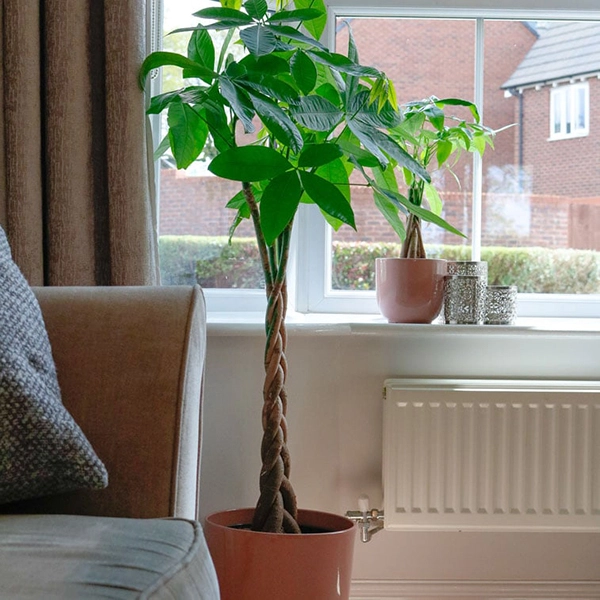
It’s no surprise that a money tree is said to bring financial fortune. This good luck plant is especially effective when placed in the “wealth corner” of your home, which is typically the southeast corner of the home in feng shui. Wealth spaces like your office can also bring luck.
This tropical tree is easy to grow indoors and may help you earn more money at home.
4. Peepal Bonsai
Scientific name: Ficus religiosa
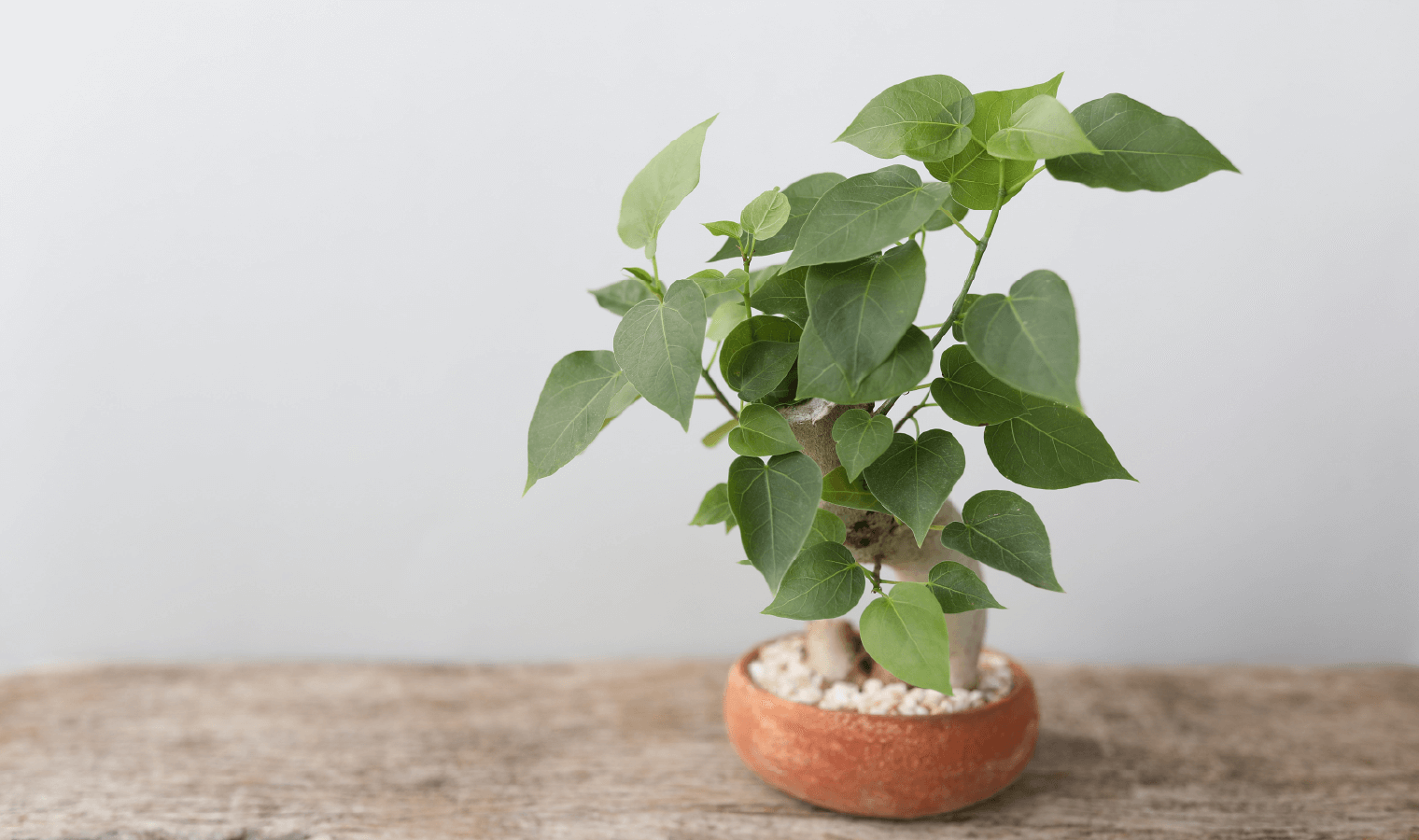
The peepal bonsai is sacred in Hinduism and Buddhism since it’s said that Guatama Buddha reached enlightenment under a peepal tree. They’re celebrated as symbols of good fortune, happiness, and long life.
These fig trees can grow tall and sport aerial roots, though they grow in pots just as well and are good for bonsai. Peepal bonsais have some care quirks, so get to know the basic care requirements before you buy.
5. Rubber Plant
Scientific name: Ficus elastica

Rubber plants are another good choice for a home’s wealth corner. They represent abundance, happiness, and wealth.
This tree sports round, dark green leaves that can fit with a variety of home decor choices. They’re natural air purifiers and relatively easy to care for, though their leaves can cause irritation when touched with bare skin.
6. Adenium
Scientific name: Adenium obesum

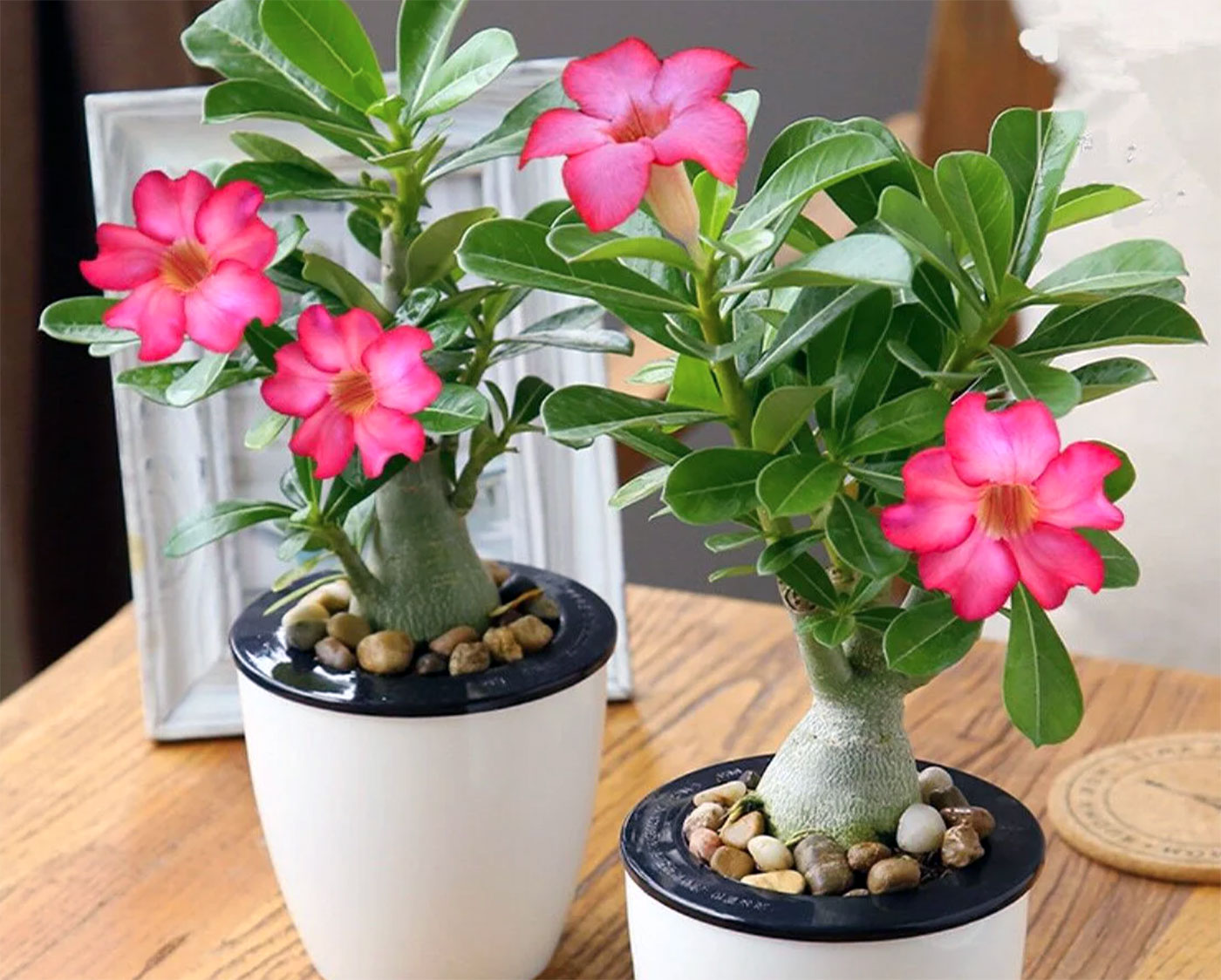
Adeniums are known as “wealth plants” in Chinese culture and are a lucky plant for the Chinese Spring Festival. Part of their luck comes from their swollen roots, which symbolize abundance and fertility.

Adeniums produce beautiful blooms and are often called the desert rose. Plants with red and pink flowers are especially lucky. This is a warm-climate plant and pretty sturdy, though cold winter months and shade can make them weak.
7. Eucalyptus
Scientific name: Eucalyptus globulus
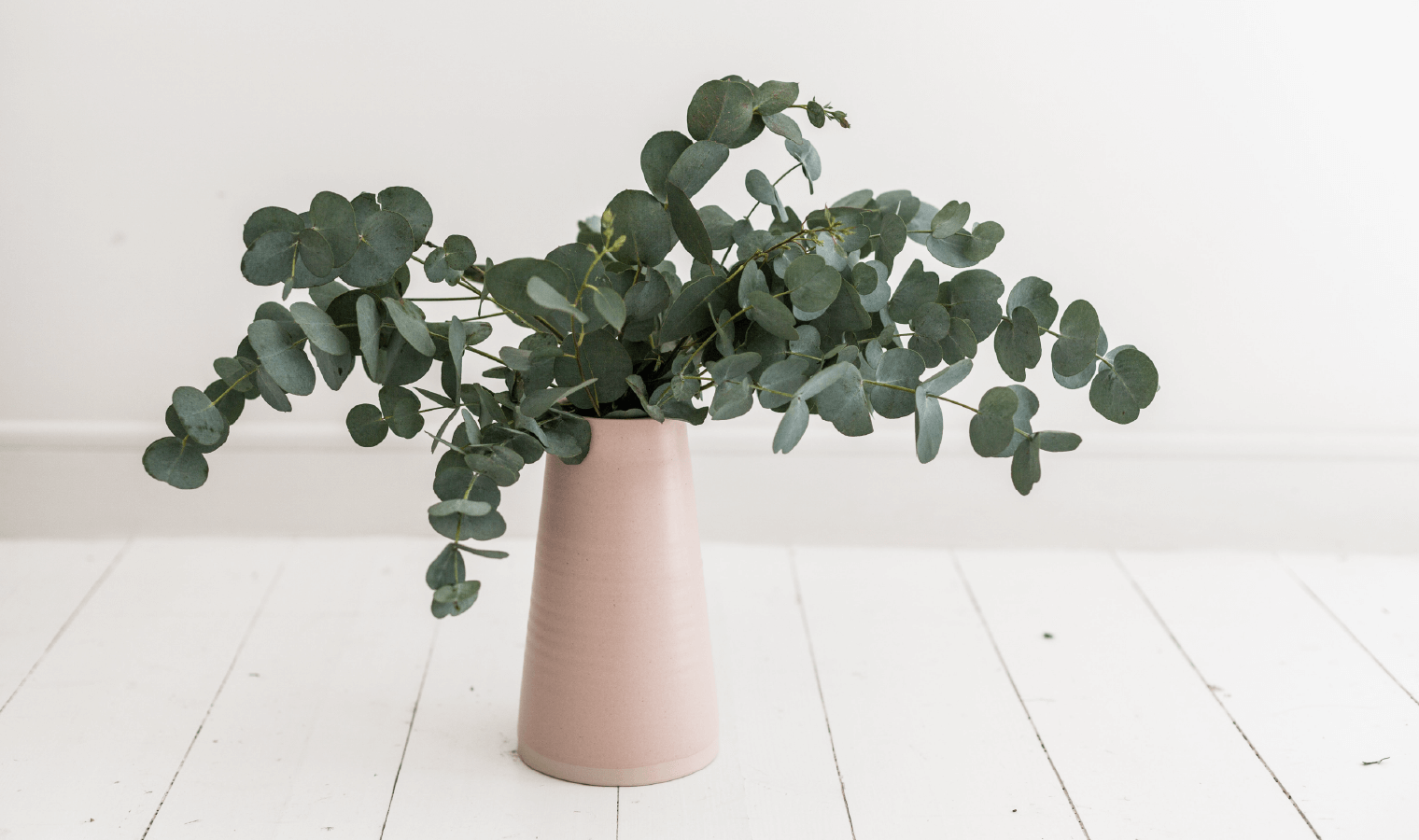
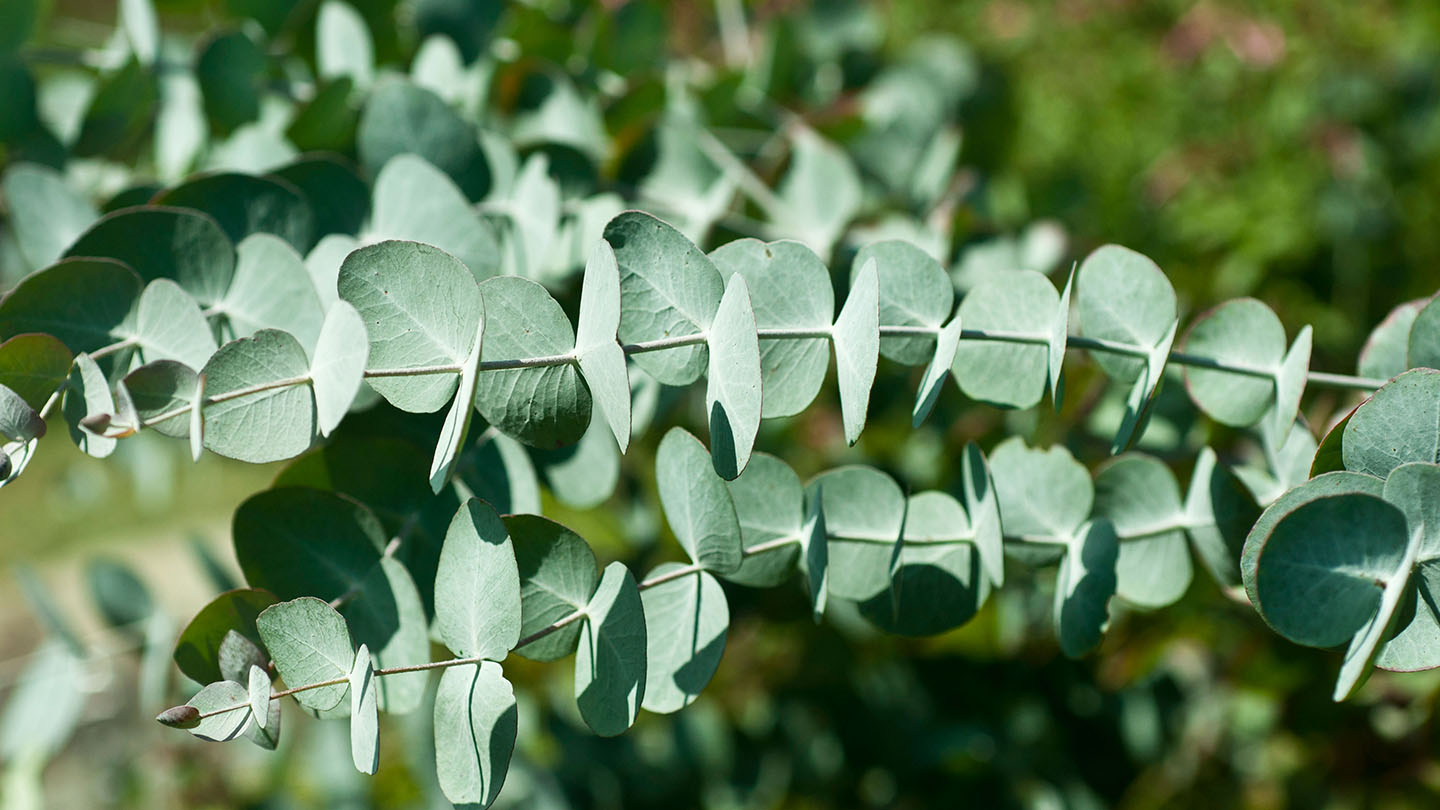

We know eucalyptus as an energizing plant with a soothing scent. These scent characteristics are associated with cleanliness and a fresh start.
Eucalyptus trees grow best with warmth and humidity, so they’re great for your bathroom or kitchen.
8. Golden Pothos
Scientific name: Epipremnum aureum
Golden pothos is another money plant that’s believed to attract wealth and reduce anxiety. Feng shui suggests that golden pothos vines can grow outdoors and provide protection, or minimize negative energy when kept in the bathroom.
Pothos plants are easy for beginners and can be trained to grow vertically for beautiful home decor.
9. Jade Plant
Scientific name: Crassula ovata
Small, round, and vibrant leaves resemble jade coins and symbolize growth and wealth. Jade plants can bring wealth when placed on the east side of the home or offices.
:strip_icc()/jade-plant-moss-accent-table-c503ce13-9538bbfb99874b278a195fb5de4fee1a.jpg)
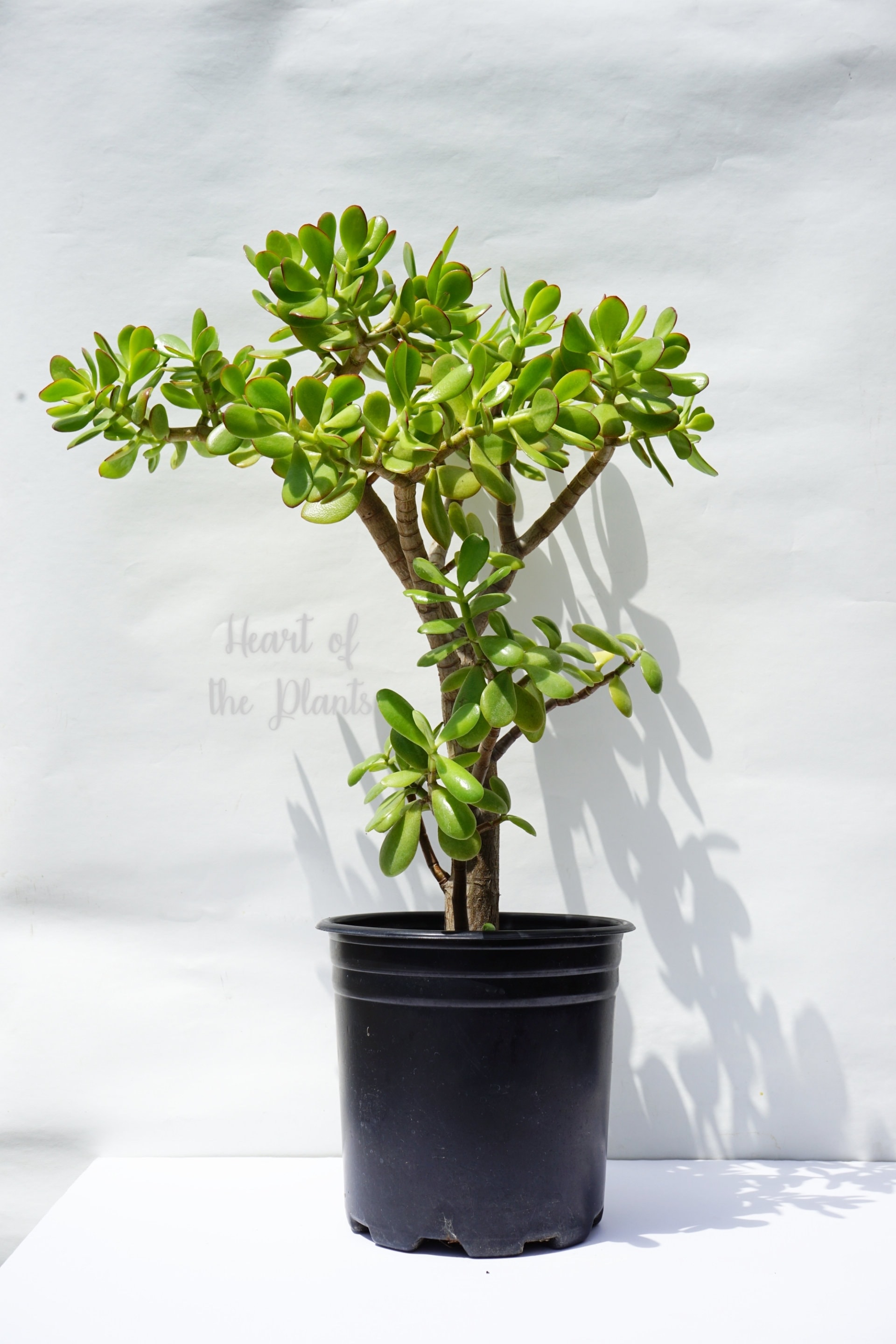
Jade plants are easy to care for but do have specific water needs. Adequate water and sunlight are essential for the jade plant’s health.
10. Lucky Bamboo
Scientific name: Dracaena sanderiana
Lucky bamboo is a common gift to wish someone well and provide prosperity. The number of stalks in a lucky bamboo determines the blessing you give the receiver.
Lucky bamboo grows in water but thrives in soil and is otherwise easy to grow. Be aware that lucky bamboo is toxic to dogs and cats, so it’s not a good fit for pet-friendly homes.
11. Snake Plant
Scientific name: Sansevieria trifasciata
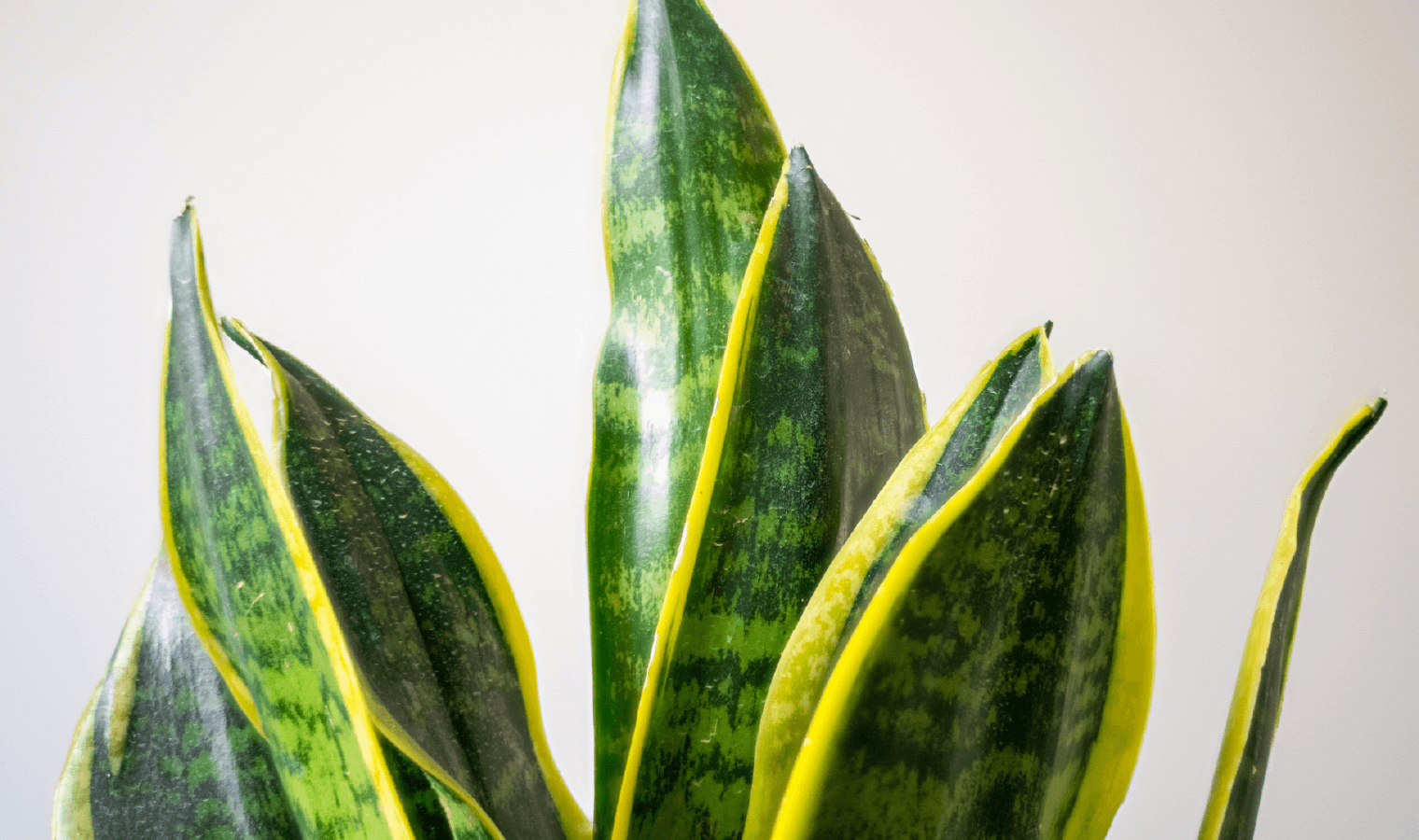
Snake plants benefit homes by absorbing toxins and reducing allergens in the air. Snake plants also produce humidity, so they’re great when placed next to tropical plants.
These plants are hardy and can do well in a variety of conditions, but be cautious about excessive watering and freezing temperatures when caring for your snake plant.
12. Lavender
Scientific name: Lavandula
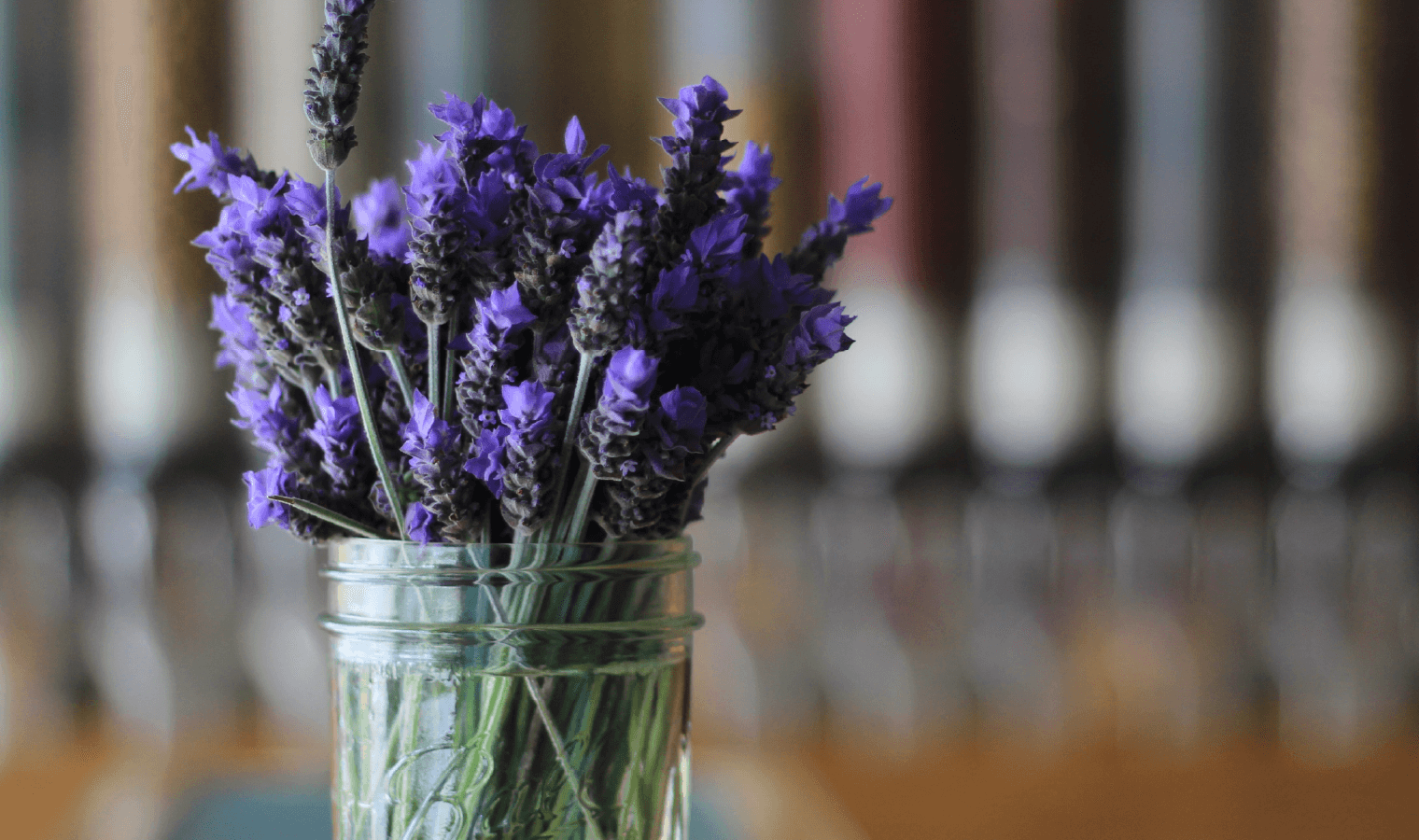
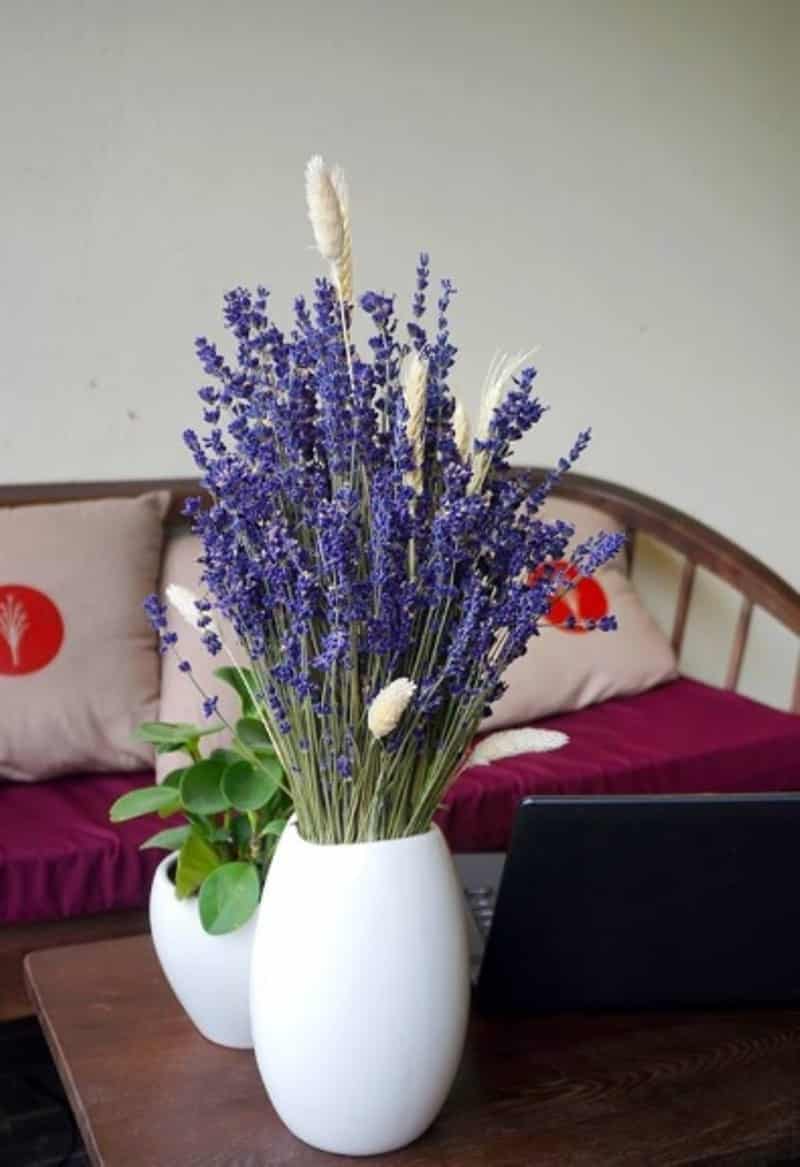
Lavender is beloved in aromatherapy for its soothing and relaxing properties. The plant can be used to make scent satchels, syrups, and even teas for your home. Of course, it’s also deemed lucky by Practical Magic’s Sally Owens: “Plant roses and lavender, for luck.”
Lavender is typically an outdoor plant and can easily be grown in a pot. It does well in dry conditions and needs proper drainage and air circulation to thrive.
13. Orchid
Scientific name: Orchidaceae
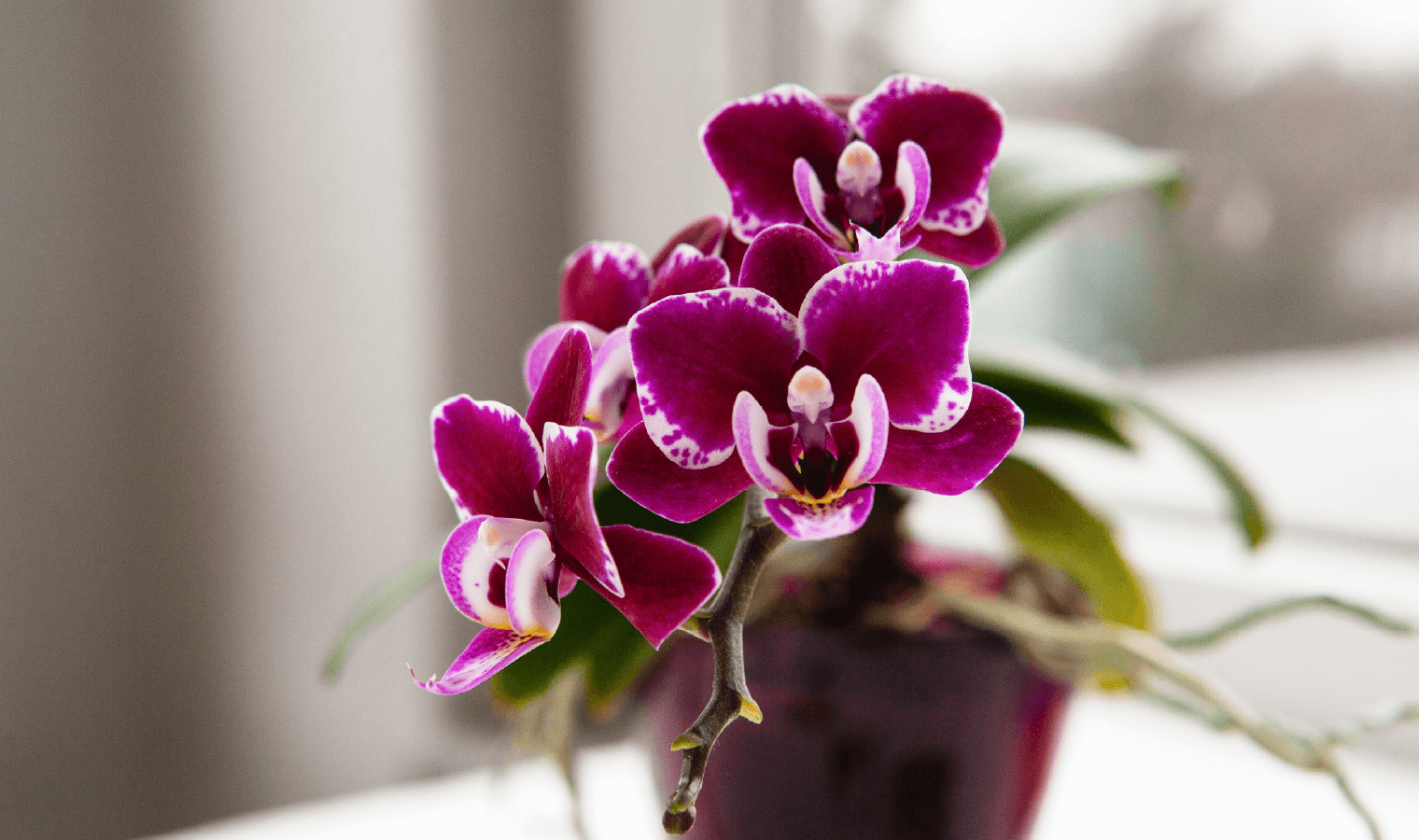
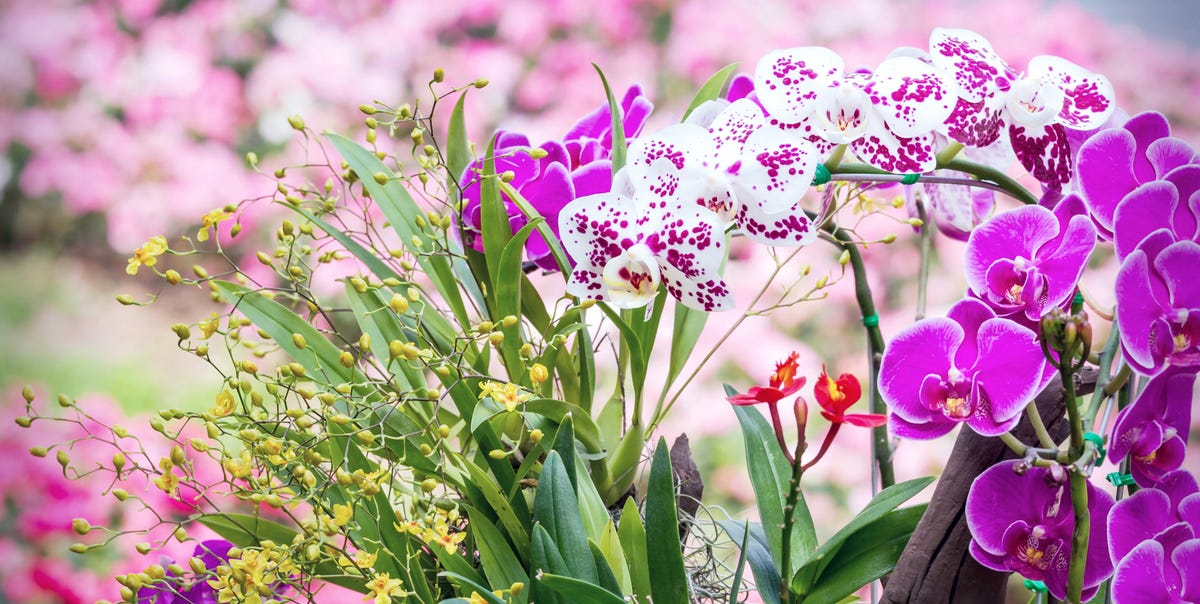

Orchids offer a wish of good luck and prosperity when given as a gift. They can also symbolize a happy marriage and career, beauty, and strength.
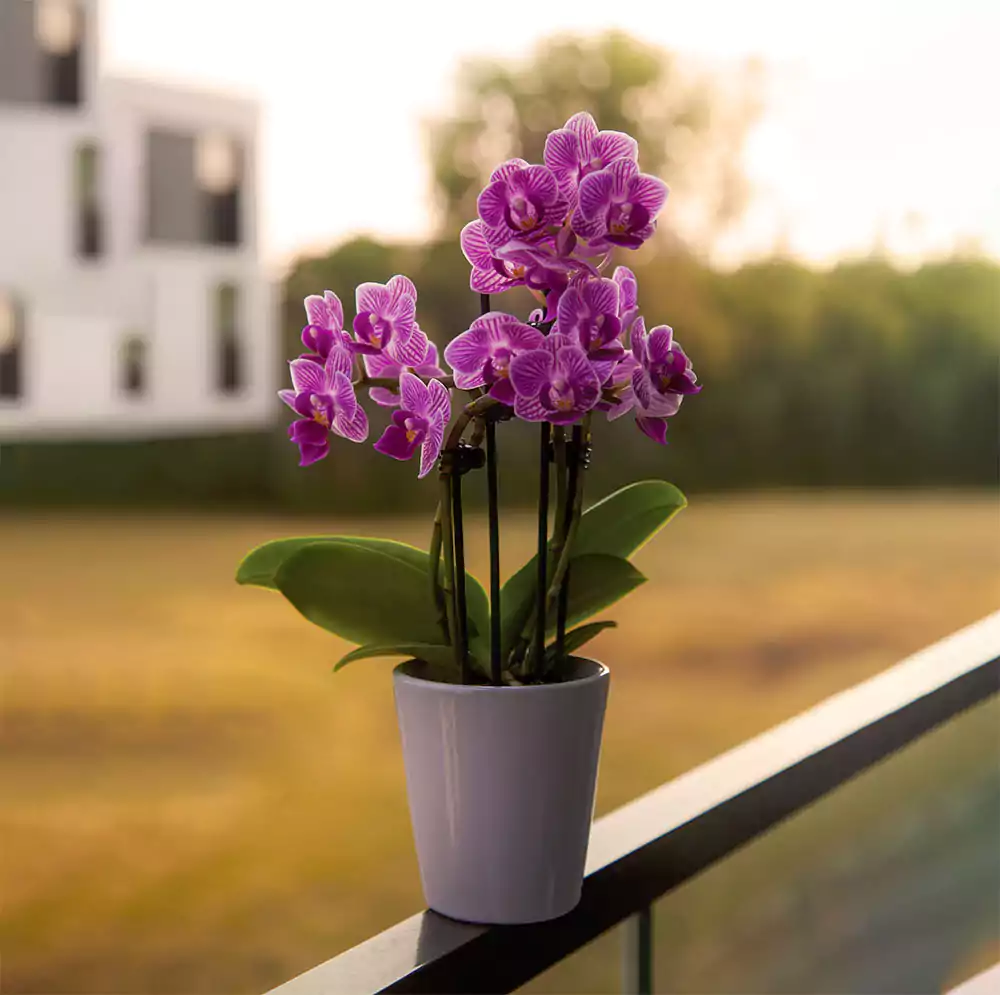
Orchids are well-known for their difficulty to grow, but they just have different needs from other houseplants. They’re tropical plants that grow on trees or rocks, depending on the species. Know your orchid variety and pay attention to its root health to provide the best care.
14. Peony
Scientific name: Paeonia
Peonies are tied to many meanings, including romance, good fortune, riches, honor, and compassion. Peonies bloom in a variety of colors, too. Red peonies are believed to bring extra good fortune.
Peonies are a beautiful addition to your garden and do well with plenty of sun and good drainage. The plant can also be divided to create a new plant for your garden or to share as a gift.
15. Pitcher Plant
Scientific name: Nepenthes
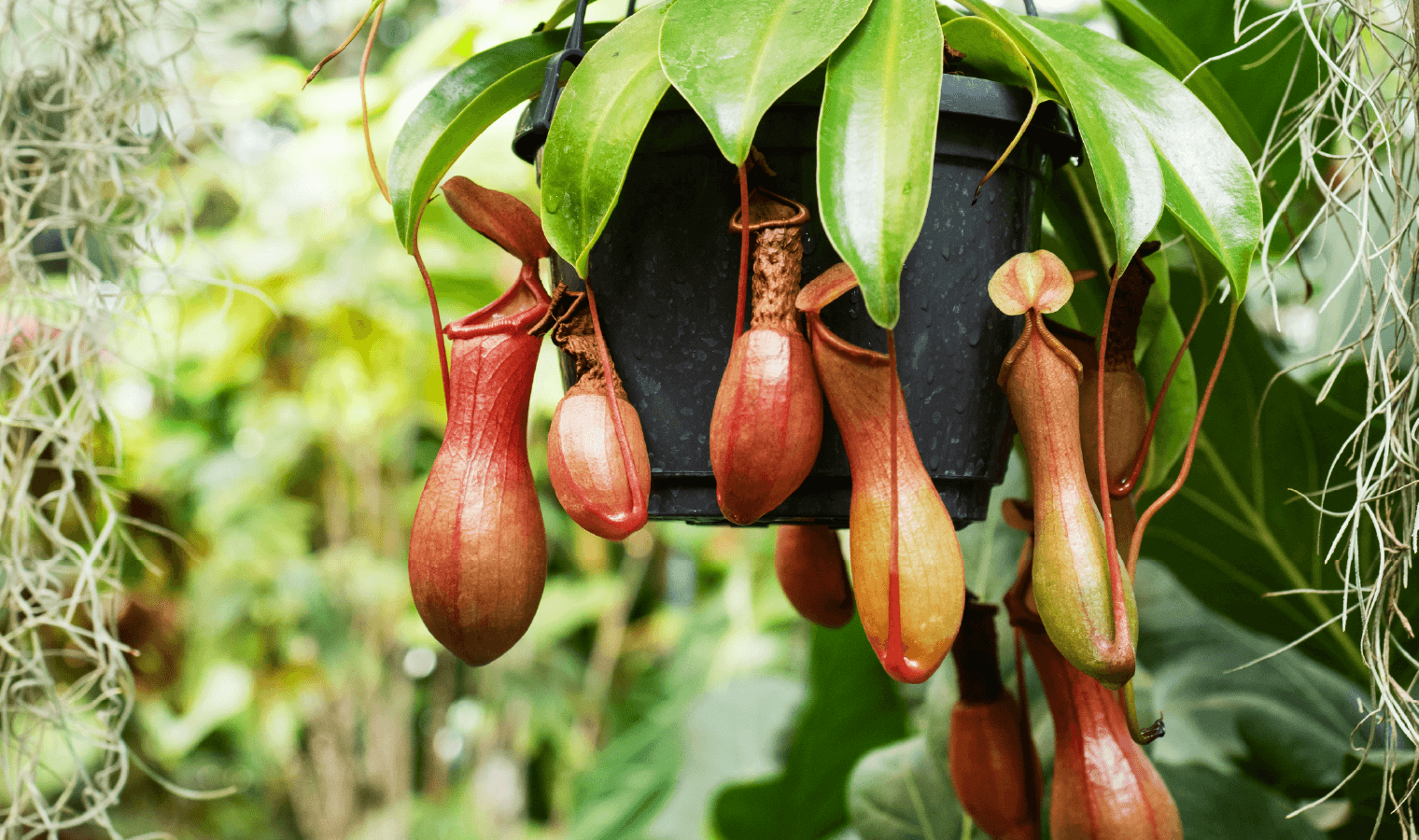
The pitcher plant is also called “袋袋平安,” which roughly translates to “bags of safety or peace” in Chinese. They’re popular Chinese Spring Festival gifts that symbolize long-term wealth. The large, pitcher-shaped leaves look like money bags, so the more “bags” you have, the luckier the plant.
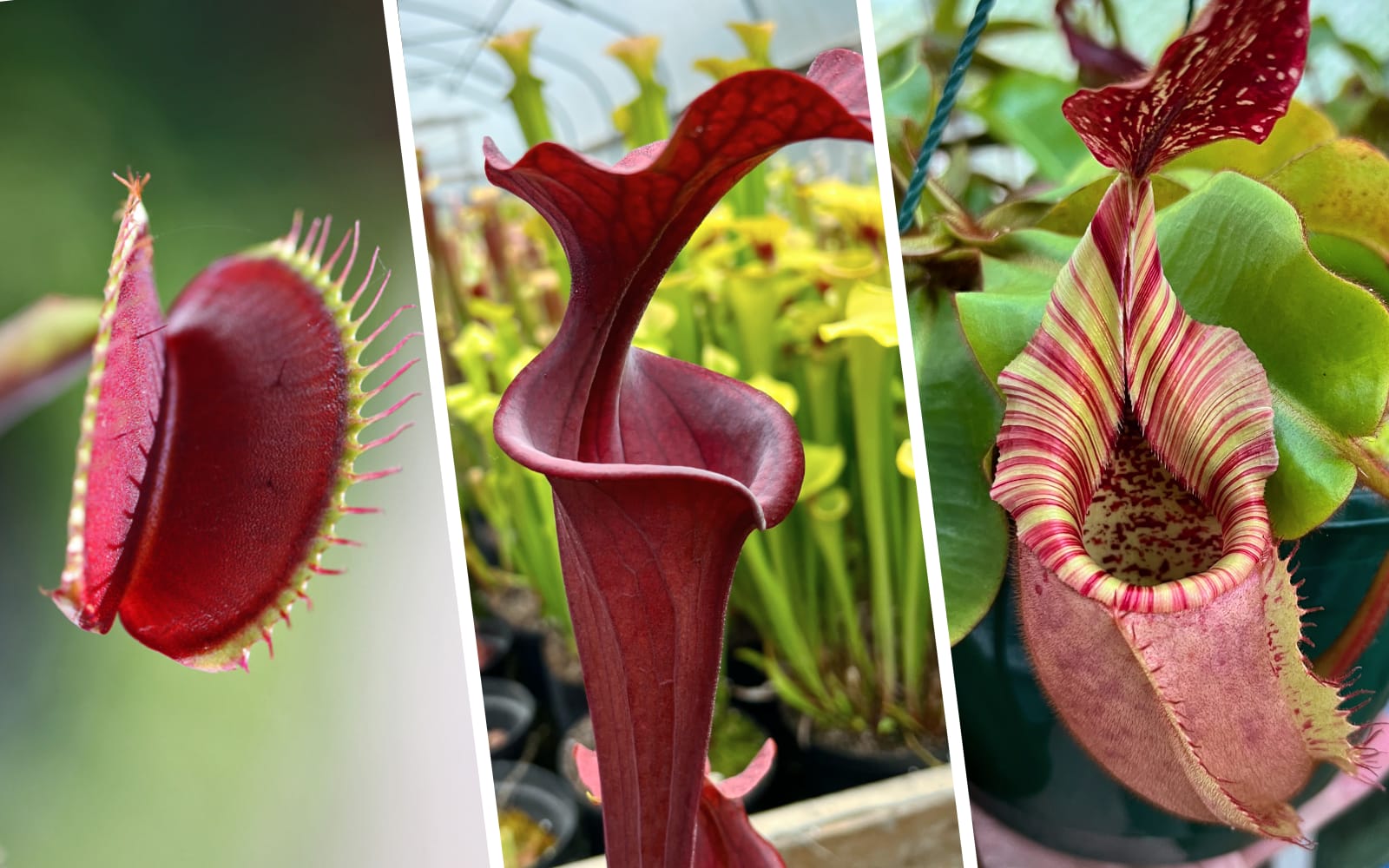
Pitcher plants are carnivorous and come in a variety of species, some more difficult to care for than others. Check what sunlight your variety requires, place it in a warm spot, and give the plant a couple of insects a month to keep it happy.
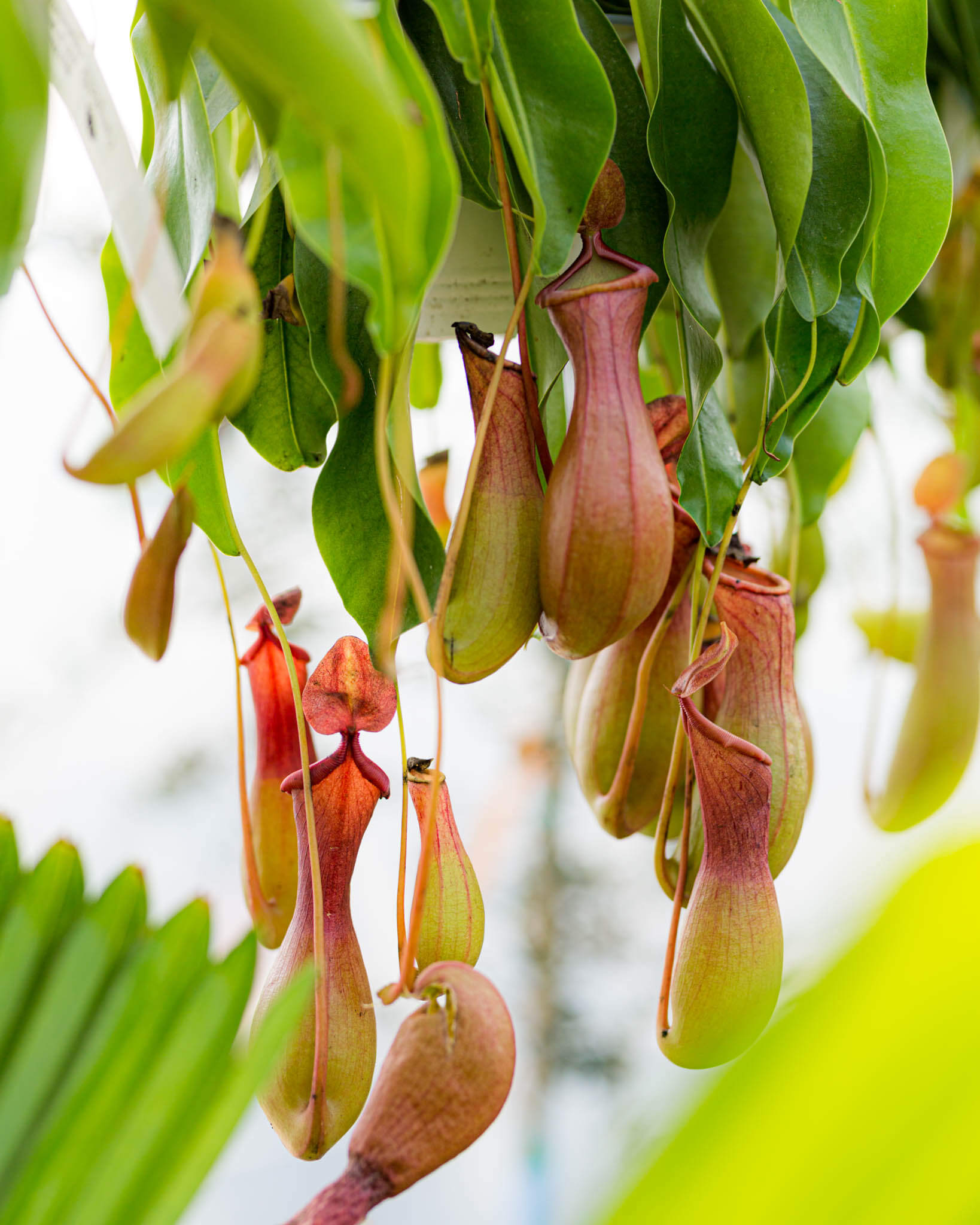
Good luck plants can boost your decor and bring positive energy home. Lucky plants are believed to have several benefits, from building wealth to emitting soothing scents. The key to maximum prosperity is to know what plant you have, where it’s luckiest in your home, and how to properly care for it.
Choose the right plant for your first house and enjoy your happy, healthy, and lucky home.









